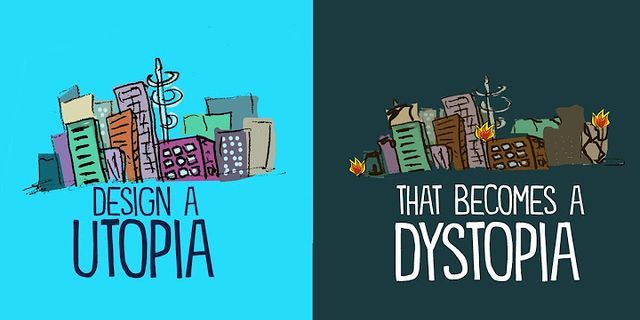|
Students will research and debate multiple topics in the topic of environmental health. The class will take sides on whether they are for or against the controversial issue. Grade Level: 6 - 8th Subject: English/Language Arts, Environmental, Science Length of Time: 2 Class Periods CCSS.ELA-LITERACY.W.7.1 - Write arguments to support claims with clear reasons and relevant evidence. Students will be able to research a controversial issue and present their argument for or against the argument. Students will analyze information given and take a stance on whether they are for or against the issue based on their peer’s research. Materials Needed
- computer lab
- various copies of the worksheet for each student
- pencil
Procedure Opening to Lesson
- The teacher will ask the students what controversial environmental topics they have heard of and that are important to them.
- Lead a discussion about the issues that are happening now in the environment.
Body of Lesson
- Students will be assigned a controversial topic and they will be assigned the “for” or “against” viewpoint.
- 2 students should be assigned each topic, but one will research for and one will research against the issue.
- Students use time in the computer lab to find credible sources that argue their side of the issue.
- Students will write a short summary of their issue that is concise and clear and accurately describes the viewpoint of the issue.
- This can be done in 1-2 class periods in the computer lab (1 hour each) or for homework if students have internet access at home.
- idebate.org has a great summary of the controversial topics.
- The next class period, students will present their summary to the class.
- The rest of the class will write notes on each student’s topic and choose whether they are for or against the topic using the attached worksheet.
Controversial Issues: (examples)
- Genetically Modified Foods
- Fracking
- The use of Glyphosate in agriculture
- Limiting births to control the growing population
- Sale of plastic water bottles
- The sale of tropical fish for home aquariums
- Vegetarian diet to help the environment
- Searching for resources in Antarctica or the Artic
- Hydroelectric dams in Patagonia
- Wind as a source of energy
- Build the Keystone Pipeline
- Store Nuclear waste underground
- Big Shopping stores such as Walmart
- More ideas can be found at. http://idebate.org/debatabase/themes/environment?term_node_tid_depth=4269
ClosingStudents can discuss their issues through a presentation.
Students will complete a summary of the topic they are assigned, arguing for or against their issue.
Modification & DifferentiationIf some students need extra help, the teacher can work with them in small groups. Teacher can also give advice on topics. Teacher should be motoring progress along the way in order to be certain that students conceptually understand the task at hand. Students will understand food scarcity and unequal distribution through a simple, yet concrete demonstration. Students will think about how people affect the environment and what they can do to help it and prevent further damage. Students work collaboratively to create the denotations and connotations of words. Observe various substances to recognize different characteristics of solids, liquids, and gases. The students will work in pairs. More 20-Question Discussions
PDF | Word | Help my site STUDENT A's QUESTIONS (Do not show these to Student B.)
| (1) | What do you think when you hear the words ‘environmental problem’? | | (2) | Do you add to the environment's problems in your daily life? | | (3) | What can you do every day to help the environment? | | (4) | Will the problems get worse or will they slowly disappear? | | (5) | What is the biggest environmental problem? Why do you think so? | | (6) | Which do you think is worse, litter in the countryside or coral bleaching? | | (7) | How eco-friendly is your country? | | (8) | What causes climate change and how can we reverse it? | | (9) | What problems do you know of about water? | | (10) | Will we (humans) kill the Earth one day? |
STUDENT B's QUESTIONS (Do not show these to Student A.)
| (1) | Why is an environmental problem a problem? | | (2) | What makes environmental problems? | | (3) | Do you think animals are angry with humans for destroying the Earth? | | (4) | Which do you think is worse, desertification or noise pollution? | | (5) | How would you explain to someone who doesn't know what global warming is? | | (6) | How would you feel if all the pandas died and became extinct? | | (7) | Who is most responsible for creating environmental problems? | | (8) | Is it better if we all went back to nature (left the cities and moved to the countryside)? | | (9) | Is it possible for everyone to change their lifestyle to help the Earth? | | (10) | Shopping increases environmental problems. Should we stop shopping? |

SEE A SAMPLE
Mail this lesson to friends and teachers. Click the @ below.
More 20-Question Discussions
PDF | Word | Help my site STUDENT A's QUESTIONS (Do not show these to Student B.)
| (1) | Do you worry about the environment? | | (2) | What stories have you read or heard recently about the environment? | | (3) | What are the biggest problems facing our environment? | | (4) | What would you do to save our environment? | | (5) | What danger does your country pose to the global environment? | | (6) | Do you think the American government cares more about its economy or the environment? | | (7) | Which countries are leaders in caring about the environment? | | (8) | What do you know about the history of how our environment came to be under threat? | | (9) | Would you give money to or actively campaign for environmental causes? | | (10) | What do you think of environmental groups like Greenpeace? |
STUDENT B's QUESTIONS (Do not show these to Student A.)
| (1) | What is the quality of the environment in your country? | | (2) | What kind of environmental policies does your country have/need? | | (3) | How important is the natural environment to you in your daily life? | | (4) | Are you environmentally friendly? | | (5) | Do you think our environment is beyond repair? | | (6) | Do you think international meetings on the environment are useful? | | (7) | What do you think our grandkids will think of the way we treated the environment? | | (8) | What is your image of an environmentalist? | | (9) | If the environment could speak, what would it tell us? | | (10) | What is our duty as custodians of the environment? |

SEE A SAMPLE
Mail this lesson to friends and teachers. Click the @ below.
| 
























